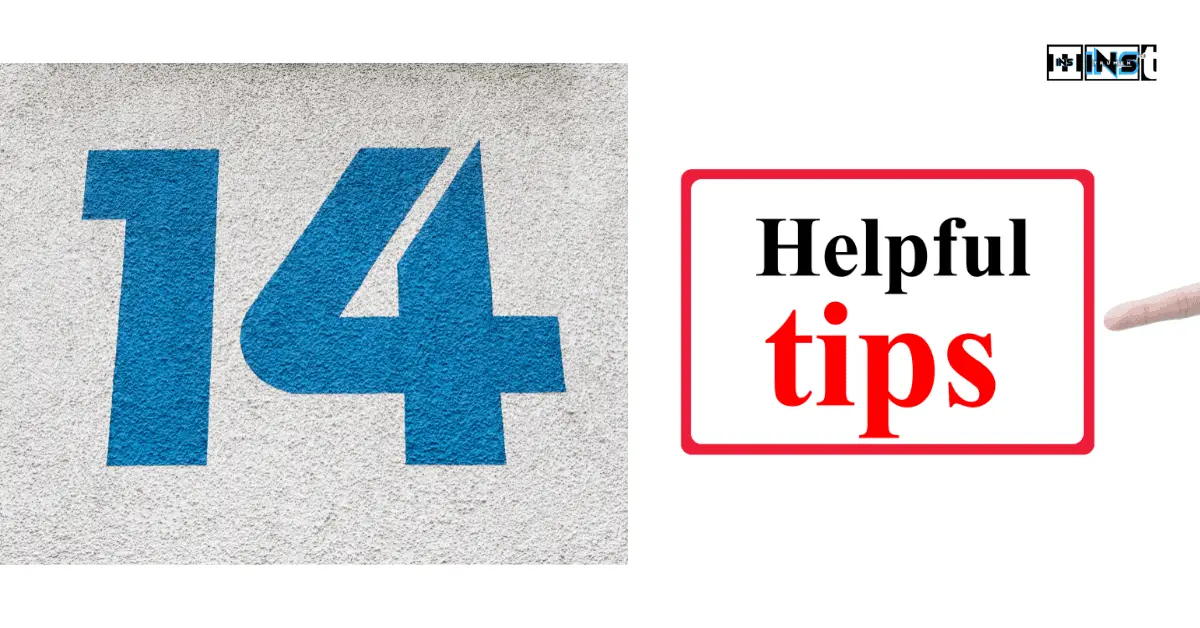If you’re looking for some tips on how to practice acoustic guitar in an apartment, look no further! Cause here; you have these 14 tips with answers to 20 vital questions that will help you make the most of your space.
In the meantime, don't forget to unlock a world of unlimited sound with Amazon Music Unlimited, where over 100 million songs wait at your fingertips. Whether you're working, relaxing, or fueling your creativity, the right track is always just one tap away. Elevate every moment with music that moves you.
Playing acoustic guitar can be annoying at times, of course not for you, but for people living with you or in your nearby apartments because of the loud type of sound it produces while playing. That’s I have come up with 14 handy tips and some useful information that can help you to solve this kind of issue that you’re facing right now. I’ve also discussed a bit about electric and bass playing in an apartment in this piece as well.
Acoustic Guitar Buying Guides
By following the tips, you can definitely practice acoustic guitar in an apartment without being tolerated by anyone whatsoever. So, before digging deep into the full article, let’s have a quick look at the tips in a glance:
- Use a headphone amplifier
- Practice palm muting
- Use a string muter
- Use a lighter string gauge
- Turn down the volume
- Use a noise gate
- Use distortion sparingly (for semi-acoustic and electric guitars)
- Playing at night can be an option
- Use silent acoustic guitars
- Get a thin-body acoustic guitar
- Consider soundproofing your playing space
- Consider using a guitar simulator
- Get a smaller amp
- Be creative
Now, let’s dive in!
How To Practice Acoustic Guitar In An Apartment? (At A Glance)
Acoustic guitars are a great addition to any musician’s arsenal, but they have been designed to sound loud. That’s why they can be tricky to practice with if you live in an apartment. While electric guitars can be easily plugged into an amp and easy to keep the noise down, acoustic ones rely on their sound output. They cannot be significantly muted without affecting the quality of the sound.
If you live in an apartment and want to learn how to practice guitar quietly without disturbing your neighbors, you can do a few things.
First, invest in a good set of headphones or earplugs. This is best to keep hearing your playing clearly without making too much noise.
Second, try to find a quiet time of day to practice. Early mornings or late at night are usually the best times to avoid disturbing your neighbors.
Third, practice in short bursts rather than long sessions. This will help keep the sound level down and allow you to focus more on the guitar playing.
Fourth, use a metronome or other similar device to keep time. This will help you to stay on tempo and control the volume of your acoustic guitar by specifying your strumming aggression and patterns.
Finally, be considerate of your neighbors while practicing at home and try to maintain low volume as much as possible. If you are respectful of their needs, they will be more likely to tolerate your practice.
By following these tips, you can learn how to practice acoustic guitar in an apartment without disturbing your neighbors. With a bit of patience and consideration, you can learn how to reduce the sound and become a master of the acoustic guitar while still maintaining good relations with those around you.
How Loud Are Acoustic Guitars?

They’re pretty loud, especially when compared to other types of instruments. Acoustic ones typically make more noise than electric ones, and they can be pretty loud when played unplugged. The highest volume produced by these instruments can reach up near 100dB, which is about as loud as some lawnmowers and motorcycles!
Some can be as loud as an alarm clock. However, it’s important to note that most would only produce sounds around 70-80dB, which are comparable with those made by a garbage disposal or hairdryer – not too shabby if you ask me!
What Determines The Loudness Of A Guitar?
Many variables can affect how loud a guitar is, including the type of guitar, whether it is unplugged or plugged in, and the strings’ vibration. Acoustics are a popular choice for many guitar players because they are relatively louder when playing unplugged than other guitars like classical guitar or travel guitar. However, when the acoustic one is unplugged, it can be quite loud depending on how hard the strings are plucked or strummed. The soundhole also plays a role in how loud a guitar is; a smaller soundhole will make less sound than a larger one. Ultimately, it is up to the guitar player to decide how loud their playing style is, depending on the strumming pattern or using a pick.
Does What Type Of Apartment You Live In Really Matter?
No matter what type of apartment dwelling you live in, it’s essential to consider your neighbors before playing in your apartment. If you live in a close-knit community, like an apartment complex, you might want to take extra care not to disturb your neighbors with a loud noise. If you enjoy playing your guitar, for example, you might want to play more quietly or soundproof your apartment so that your neighbors aren’t disturbed.
In general, it’s essential to be aware of the noise level in your apartment and how it might affect your neighbors. However, if your apartment is huge enough to absorb the sound inside the apartment space, then the consequences may be different. But that’s not the case for most of us. So, it is important to be aware in the first place than regretting later. Following these things will definitely help you become a better neighbor.
How To Make Music Quietly?
If you want to make music quietly, there are a few things you can do. Nylon-string guitars are quieter than steel-string ones, so if you have an acoustic with nylon strings, that’s an excellent place to start. You can also try fingerpicking instead of strumming, and that will make a difference in the volume as well. Finally, if you’re playing late at night in an apartment or other dwelling, try to be aware of your surroundings and reduce the volume accordingly so you don’t disturb others.
How Do You Strum Acoustic Guitar Or Electric Guitar Quietly?
To strum quietly on a guitar, you can either unplug it or switch to an acoustic one. Unplugged electric guitars can allow you to play in silence as they are generally much quieter than acoustic ones. If you’re using an acoustic, make sure to play softer and not strumming too hard, and that the volume is turned down low enough.
Why Playing Loudly In An Apartment Annoying?

Acoustic guitar playing makes noise in an apartment setting which can be annoying at times. The strumming and picking can be pretty loud, especially if the guitar player is not using headphones or muting the strings. This can be a big problem for people who live in apartments, as the noise can easily carry through walls and disturb neighbors. Additionally, the acoustics are often amplified when played live, so the overall volume can be pretty loud and reduce the quality of life for those living nearby. If you are a guitarist who lives in an apartment, it is crucial to practice quietly or use an amp with reduced volume when playing.
Which Guitars Are More Apartment-Friendly: An Electric Or An Acoustic?
Both can be apartment friendly if played properly with the correct setup. If you are playing an electric one, unplugging it from the amp makes this apartment friendly. In the case of playing acoustic, as I mentioned above, less aggressiveness during strumming or using the fingerpicking style might be worth trying in order to make it apartment-friendly.
However, studio-style, over-the-ear headphones are best to make any instrument apartment friendly. You can use one of these if you don’t want to bother your neighbors.
How To Play Electric Guitar Quietly?
If you want to play an electric one quietly, you’ll need to use headphones or use a practice amp. You can’t just play the electric guitar without an amp like you can with the acoustic one. This is because electric ones rely on amplifiers to create their sound. Without an amp, they would simply be silent.
Many different types of amps are available on the market, from small and portable practice amps to larger and more powerful tube amps. If you’re just starting, we recommend the Yamaha THR10, which is a tremendous all-around practice amp for both beginners and experienced guitar players alike.
Once you have your amp, simply plug in your headphones, set the volume to a comfortable level, and start plucking away! You’ll be able to hear your playing without disturbing anyone else.
Can My Neighbors Hear Me Playing Acoustic Guitar?
It’s a question that many guitar players who live in apartments have. The simple answer is: it depends. If you’re using headphones, then your neighbors won’t be able to hear you playing. But if you’re using an amp, then there’s a good chance that your neighbors will be able to hear you. If you’re worried about disturbing your neighbors, the best thing to do is to soundproof your apartment. That way, you can play your guitar as loud as you want without bothering anyone.
Can You Mute An Acoustic Guitar?
Yes, you can mute an acoustic guitar and practice it quietly by muting the strings with your left hand while strumming. This is called palm muting, which is an excellent way to practice without disturbing others. You can also use thin body travel guitars to practice the palm muting technique and continue playing from there, which will reduce the noise close to nill.
Another great option is using a string muter. A string muter can be placed on the fretboard and mute the string with a simple push of a button. This is also an excellent tool for live performances as you can reduce the guitar’s volume between parts of songs.
The last method we recommend for reducing the noise from your instrument is to use a soundhole cover. The soundhole cover is basically a quality rubber that is placed over the soundhole of your guitar and helps dampen the sound of your instrument. This is a great option if you want to practice without disturbing others or if you just want to play quietly in general. While this won’t completely mute your acoustic guitar, it will significantly reduce the volume.
What Kind of Amp Is Best For An Apartment?
There is no definitive answer to this question as it depends on personal preferences and the type of music you want to play. If you want to sound a little, a headphone amp is probably the best option. If you’re looking for an amp that will give you the same sound as if you were playing in a band, then an apartment-friendly amp like the Fender Mustang GT 40 is a good choice.
What About Soundproofing Your Space?

If you live in an apartment, you may want to consider soundproofing your space. This can be especially important if you have paper-thin walls and your neighbors are close by. There are a few different ways you can soundproof your apartment walls. One is to use acoustic panels. These are absorbent panels that help to reduce the overall noise that is reflected off of surfaces. Another option is to use soundproofing materials such as dense curtains or rugs. These help to absorb sound and reduce the amount of noise that is transmitted through the air.
Can You Play Bass In An Apartment?
Yes, you can play bass in an apartment. You just need to unplug your bass and use headphones. The sound won’t be as loud as if you were playing without headphones, but it will be loud enough that you can hear it.
Why Is My Guitar So Loud?
There are a few reasons why your guitar might sound particularly loud. It could be that the strings are new and haven’t been blended in yet, or it could be that the action is set too high. But more likely, it’s simply because you’re playing with too much force.
If you’re finding that your guitar is sounding louder than usual, try backing off the force a bit and see if that makes a difference. If not, then it’s time to take a trip to the guitar store to have them take a look at the action. It could be that you simply need to get your instrument adjusted.
What Is The Best Setup For Playing Guitar In An Apartment?
There’s no definitive answer to this question – it depends on the individual apartment, the type of guitar being played, and the preferences of the person playing. That said, there are a few general tips that can make playing guitar in an apartment more enjoyable:
-If possible, use an electric unplugged instead of an acoustic. Although acoustics are more fun to play by using this method, the sound will be less likely to carry and disturb neighbors.
-Invest in a good pair of headphones so you can hear your acoustic guitar quietly without turning up the volume too loud.
-If you do need to use an amp, try to find one that doesn’t have a lot of basses. The lower frequencies are more likely to travel through walls and bother people in other apartments.
-If possible, try to use a silent guitar.
How Does A Silent Guitar Work?
A silent guitar is a type of guitar that does not produce any sound when played. Instead, the vibrations from the strings are transferred to an amplifier or headphones. This allows the player to practice without making any noise.
Practice Guitar In Silence (The Best Option)
You can practice guitar in silence using a guitar simulator. A guitar simulator is a computer program that can emulate the sound and feel of a real guitar and it can be used for both practice and performance. More on this in the later section. So, keep going!
Some guitar simulators even come with built-in lessons, so you can learn how to play the instrument without having to take any formal lessons. And because they’re digital, you can store them on your computer or portable device and take them wherever you go.
With a simulator, you can get the sound and feel of a real guitar without having to make any noise. So if you’re looking for a way to practice in silence that is also easy to carry around, then a simulator is a great option.
Now, let’s take a look at the tips in detail:
14 Tips For Apartment Guitarists

1. Use a Headphone Amplifier
If you want to be a considerate neighbor, using a headphone amplifier is the way to go. This will allow you to practice without disturbing those around you. There are many great options on the market, such as the Vox amPlug 2 AC30 or the Blackstar ID: Core Stereo 10 V2.
2. Practice Palm Muting
As I talked about this before, palm muting is a great way to keep your playing quiet. Even playing palm muting is also a great technique to practice, as it will make your strumming sound more controlled and tight.
3. Use a String Muter
If you don’t want to use palm muting all the time, another option is to get a string mute. This is a device that you attach to your guitar’s strings, and it will effectively mute them. This is an excellent option if you want to be able to play without disturbing others.
4. Use Lighter Strings
If you want to reduce the amount of noise, using thin gauge strings is a great option. This will make your sound level lower, quieter, and more mellow.
5. Turn Down the Volume
This one is pretty self-explanatory – if you want to keep the noise down, turn down the volume on your amp. You don’t need to play at full volume to get a great sound, even the lowly volume can produce a great sound, so there’s no need to disturb your neighbors without a valid reason.
6. Use a Noise Gate
A noise gate is a pedal that you can use to reduce the amount of noise your guitar makes. This is a great option if you want to be able to play at a higher volume without disturbing others.
7. Use Distortion Sparingly
If you’re using distortion, be aware that it can make you’re playing louder and more aggressive-sounding. If you want to keep the noise down, use distortion sparingly.
8. Playing at Night Can Be An Option
If you want to avoid disturbing your neighbors, you can try to make the practice session at night. Most people are asleep at night, so you won’t have to worry about disturbing them. However, you must keep the volume lower, though.
9. Use Silent Acoustic Guitars
The next tip is using a silent acoustic guitar like the Yamaha SLG200S. This is a great option if you want to practice without disturbing others. It’s also a great option if you want to play an acoustic without amplification.
10. Get A Thin Body Acoustic Guitar
The acoustic guitar body plays an important role in the loudness of an acoustic guitar sound. Generally, dreadnought-style or thick body acoustics are louder than the thinner ones like Ibanez TCY10, Yamaha APX600, etc.
11. Consider Soundproofing Your Playing Space
If you want to be able to play without disturbing others, soundproofing your playing space can be a wise decision. This will help to keep the noise down and allow you to practice with the loudness that you want. It is only recommended if you’re passionate and committed to your playing.
12. Consider Using a Simulator
The next tip I want to give you is to use simulator software like AmpliTube or Guitar Rig. This will allow you to get the same experience as playing a real guitar without making any noise. This is eventually the best option you can consider as I mentioned earlier.
13. Get a Smaller Amp
If you want to keep the noise down, using a smaller amp is a great option. You don’t need a massive amplifier to get a great sound, so there’s no need to disturb your neighbors.
14. Get Creative
There are many ways to play guitar without disturbing your neighbors. Be creative and see what works best for you.
FAQ
Q. Is the acoustic guitar too loud for the apartment?
An acoustic can be too loud for an apartment, depending on how thin the walls are and how close your neighbors are. If you live in a close-knit community, it’s important to be considerate of your neighbors and try to hold the noise level down.
Q. Does anyone play guitar in an apartment?
There is no definitive answer to this question since it can depend on a variety of factors, such as the specific apartment complex and the noise level tolerated by the neighbors. That said, playing my guitar in an apartment can be possible as long as I take measures to minimize the noise impact, such as using an acoustic or an electric one with headphones.
Final Verdict
Living in an apartment doesn’t mean you have to give up your dreams. With a little creativity and some tips from this article, you can start practicing right away – without annoying your neighbors! If you’re an apartment guitar player, you know the struggle. You want to practice, but your neighbors are always giving you dirty looks. Or maybe you can’t play because your roommates are always watching TV or taking a nap.
But, you don’t need to worry as we’ve got you covered with the 14 tips for making your acoustic or even electric guitar playing in an apartment a little less annoying (or at least more manageable). While what type of apartment you live in will make some difference, there are ways to make your acoustic guitar quieter – regardless of how close your nearest neighbor is. And if all else fails, then you know what to do; it’s time to play a silent acoustic guitar!
As an Amazon Associate, Cleanestor earns from qualifying purchases at no additional cost to you.

